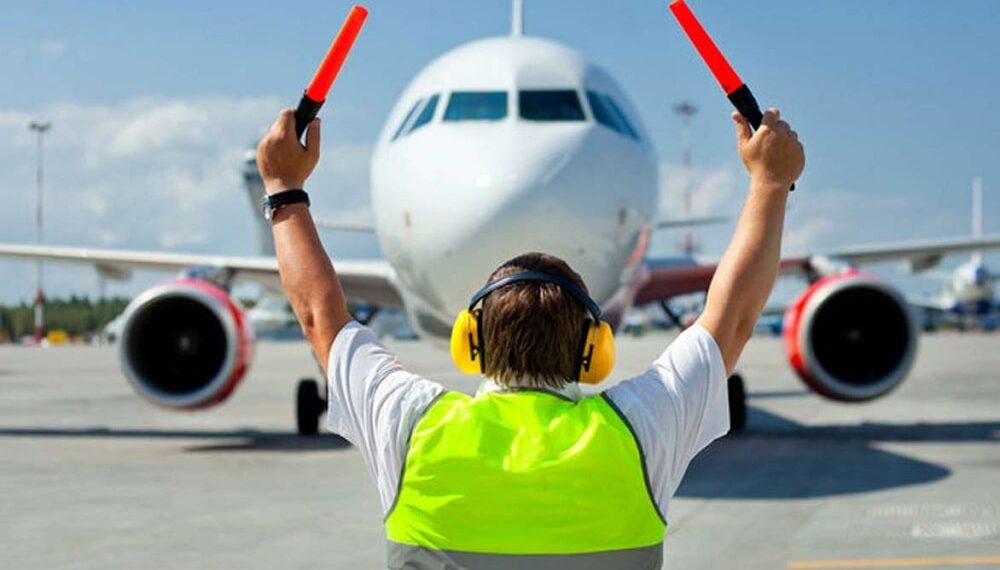When we talk about the career opportunities in the aviation sector, the opportunities are endless. Needless to say just like the title, sky’s the limit, well pun intended! Almost every profession in this field requires prior training under professionals. Thus, it becomes crucial for one to make a firm decision in case they plan on joining this area and find a good training school for their bright career. If making so many decisions sounds overwhelming, then don’t worry we got your back. This article focuses on how to fly your career in the aviation industry, the many different ways to join the aviation sector and finally the importance of choosing the right courses and training programs.
Short Brief about the Aviation Industry
The aviation sector in short encompasses everything that has got to do with flying. It includes the airline sector (both passenger and cargo), military aviation, production and usage of drones, airline manufacturers, researchers, air safety specialists etc. It is a growing and a promising industry globally with attractive job roles for the young.
Career opportunities
This industry is only for people who are passionate about it. Apart from the professional skills and excellence the job profiles demand for leadership and effective communication. So let’s go ahead and explore the many options available.
- Pilot: This one’s a no brainer. Apart from private and commercial airlines, there are job opportunities for flying and navigating helicopters and many other aircrafts. There are job roles in the air force and navy involving rescue and emergency situations.
- Aircraft manufacturing engineer: This job role revolves around design, construction and manufacture of various parts of an aircraft. There’s an adjacent job role of an aircraft maintenance engineer which involves inspection and maintenance of aircrafts. With the continuous growth in the industry, these job roles are promising with a great future.
- Air Traffic Controller: An air traffic controller controls all the airline traffic in an allotted space area. They monitor and constantly instruct the pilots on landing and takeoff procedures. The air routes for the airplanes or any aircrafts is decided by them. Also they need to keep analyzing the weather forecast in order to give the right.
- Avionics Engineer: The job of an avionics engineer involves researching and solving problems related to aviation electronics. This may involve working on landing systems, communications equipment, safety instrumentation, navigation and flight-control systems. Their other job roles also consist of conducting system inspections, testing and repairing faulty systems.
- Flight Test Engineer: A flight test engineer has the responsibilities of testing the performance and operations of all the parts of the aircraft in order to ensure that they hold well with the Federal Aviation Administration guidelines and regulations.
All the above mentioned professions assure a bright career and success along with a handsome paycheck. Apart from them, there are many other job roles like Aviation Maintenance Technician, Quality Control Personnel, Aircraft Mechanic, Aviation Engineer, Flight Steward/Stewardess etc.
The Training Programs
There are many courses available through which one can enter the aviation industry. Depending on one’s interest, we can broadly divide them into 3 categories:
- Flight School: There are many institutions which teach how to fly aircrafts. These are called as flight schools/pilot schools. This training program is specifically for people who wish to become a pilot.
- Technical Courses: For people who wish to join the technical side of aviation for example which includes job roles like Aviation Engineer, Flight Technician etc., can do aerospace engineering or other programs which specialize in this field.
- Management Courses: Lastly for people who wish to join in management positions, there’s a wide range of courses available. For example, BBA in airport management, BBA in aviation, Diploma in airline and airport management etc. There are also many diploma courses available in ground staff and cabin crew training. Flight steward/stewardess need to undergo special training programs in hospitality and management.
Importance of choosing the right course
Every job in this is skill specific. That is one needs to have undergone professional training before taking up the occupation. Hence it becomes very important to choose the right course and training program. Apart from these skills, people working in this industry come across customers on a daily basis, so they need to have good communication skills. Effective communication skills also come in handy for pilots, as they constantly need to stay in contact with the ground station instructing them. There can be many situations of panic and emergency in aviation, thus one needs to be trained on how to tackle such instances. Thus one right decision of choosing the right course for you, can shape your entire career.
So if you are passionate about this field, then it’s the right choice for you! It’s exponentially growing and always in demand. So go ahead without any further ado. But keep in mind to choose the right course for yourself, and no one can stop you from flying your way through the aviation industry!


































